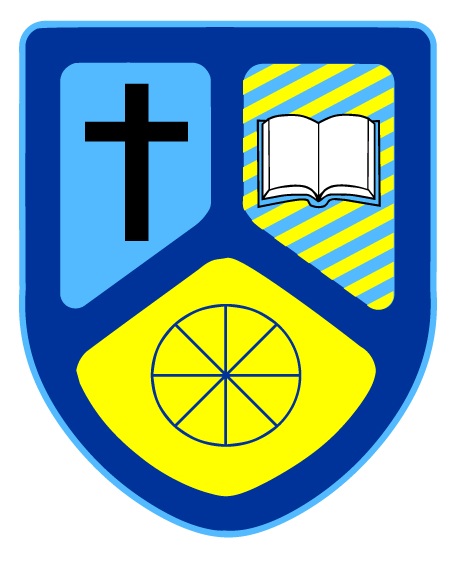Subject Leader- Mrs L Knight
Intent:
The science curriculum at Edward Peake has been specifically designed for our pupils to ensure that they not only become confident and enquiring scientists but also are enthralled by the wonders of science and its impact on our lives in the past, present and future. We benefit from four fully equipped science labs which are used by all year groups which allows us to create a curriculum that suits the needs of our pupils.
Our main aims are to:
- Live: Ensure pupils develop scientific investigation skills, an enquiring mind and high quality communication skills which they can apply to lifelong learning so that they can make an active contribution to society.
- Love: Broaden pupils’ horizons by giving them opportunities to explore current environmental, global and scientific issues in order for them to better understand the world they live in.
- Learn: Develop independent, confident and successful scientists who achieve the best possible academic standards, whatever their starting point.
Pupils will explore the impact of science for the future. This will be done through our four key concepts that are threaded throughout our science curriculum. These are: making healthy lifestyle choices, maintaining and building communities, sustainability and jobs for the future.
The science curriculum at Edward Peake has been designed to meet the aims of our whole school curriculum to ensure that all pupils are able to succeed no matter their starting points and barriers to learning. Our curriculum is designed to be challenging for all pupils but as part of our commitment to equality we will support pupils in accessing this aspirational content. We are also committed to meeting the whole school aims of developing pupils’ cultural awareness by exploring a wide range of scientists from across the world and their impact on our lives through their scientific discoveries.
We have made a commitment to support the draft sustainability and climate change strategy for education published by the Department for Education in November 2021. A copy of the draft strategy can be found here: DFE Draft Climate and sustainability document
Implementation:
Pupils are encouraged to broaden and deepen knowledge whilst showing a positive attitude to learning. In key stage 2 we secure pupils’ knowledge gained at lower school and often go beyond the prescribed learning in the national curriculum for year 5 and 6 as we have access to fantastic resources including four fully equipped science labs. We make use of specialist teaching and knowledge to develop our curriculum at key stage 2 to give pupils opportunities to work scientifically and use specialist science equipment. In key stage 3 we follow a three year key stage 3 programme with years 7 and 8 taught here and year 9 taught at our local upper schools. This allows us to deepen pupils’ scientific knowledge to ensure that they fully grasp the key concepts which will help them to become independent and confident scientists. Lessons use the Edward Peake lesson structure to ensure that pupils are fully supported and challenged to achieve their very best.
| Live: Ensure pupils develop scientific investigation skills, an enquiring mind and high quality communication skills which they can apply to lifelong learning so that they can make an active contribution to society. | Love: Broaden pupils’ horizons by giving them opportunities to explore current environmental, global and scientific issues in order for them to better understand the world they live in. | Learn: Develop independent, confident and successful scientists who achieve the best possible academic standards, whatever their starting point. | |
| In the classroom | To excite children about science and the scientific understanding of our universe through multimedia teaching and learning experience.
Adults use open ended questions to challenge and lead students thinking ensuring that misconceptions are dealt with at an early stage. |
Recognise that science has the means to help our community to develop and improve.
Explore issues such as climate change, sustainability and pandemics and their impact on our lives
Adults model activities and thinking for children. |
To encourage science through working scientifically and to provide the widest variety of means of understanding a concept using a full range of teaching aids.
Pupils have time to reflect and use mistakes as a learning opportunity. |
| Out of the classroom | Raise pupil’s awareness of science in the world around them through links with outside agencies such as Bloodhound Project, upper schools, Rotary technology tournament | Extra curricular trips and experiences with external providers eg The Big Bang Fair (NEC), Space Centre (Leicester), Race to the line, Harper Trust space dome, Natural History Museum and others.
Links with other school groups such as the Ecoclub and Plastic Free Schools |
Challenging activities through homework tasks.
Pupils are asking the questions and make choices in enquiries. |
Impact:
Pupils achieve academically, are ready for their next steps in education and have high aspirations for their future.
| Live: Ensure pupils develop scientific investigation skills, an enquiring mind and high quality communication skills which they can apply to lifelong learning so that they can make an active contribution to society. | Love: Broaden pupils’ horizons by giving them opportunities to explore current environmental, global and scientific issues in order for them to better understand the world they live in. | Learn: Develop independent, confident and successful scientists who achieve the best possible academic standards, whatever their starting point. |
| Pupils enjoy their science lessons and actively participate.
Pupils, regardless of background, are able to investigate a problem, question current scientific knowledge and communicate their ideas clearly. |
Pupils are inspired by what they have learnt about science in the world and are keen to pursue these interests further through career choices or travel. | Pupils make good progress and are able to achieve academic success
Disadvantaged pupils are supported in order to close the gap between themselves and their peers |

